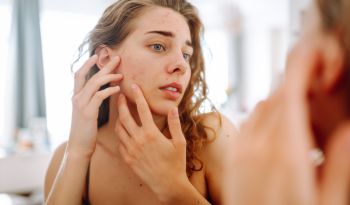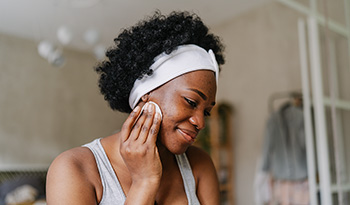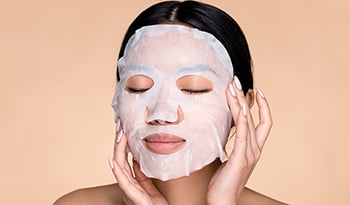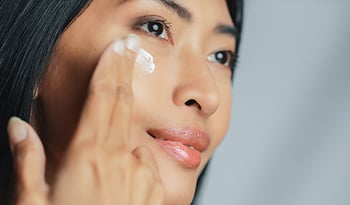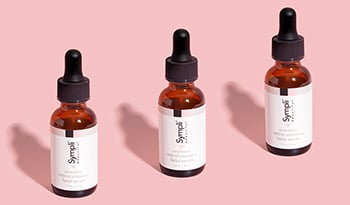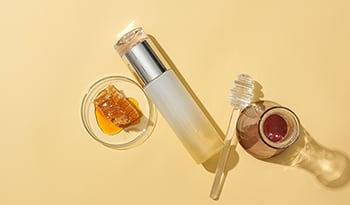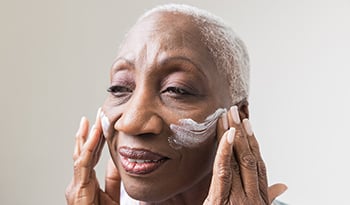What Are Phytosterols? Plump and Hydrate Skin with This Ingredient!

Many of my patients ask me about skincare products made with natural ingredients that can still help keep their complexion glowing and healthy. And one skincare ingredient that has been receiving attention lately belongs to a class of plant-derived compounds called phytosterols.
What Are Phytosterols?
Simply put, phytosterols are naturally occurring plant molecules that resemble cholesterol. Phytosterols can be found in a wide variety of plants, but are most abundant in nuts, beans, sunflowers, soy, and vegetable oils including sesame, peanut, and canola. Phytosterols have been touted for many anti-inflammatory effects, and they may even help stimulate hair growth and lower cholesterol. They are also used in oral supplements and topical creams and lotions. Today, I want to focus on the benefits of phytosterols for the skin.
What the Science Says About Phytosterols
There have been a few studies that have examined the effects of phytosterols on skin. One study done in Germany involved 10 subjects who exposed their skin to various creams, including vitamins, ceramides, and phytosterols. They found that the use of creams containing phytosterols and ceramides actually prevented the breakdown of collagen in the skin, a process that can, unfortunately, happen when our skin is exposed to the sun. As you can imagine, over time, repeated exposure to UV radiation from the sun causes our skin to lose collagen, so having a cream that can decrease that process helps with anti-aging. They also found that phytosterol-containing creams can even help with stimulating some collagen growth.
Another study found that phytosterols can increase the production of collagen as well as hyaluronic acid in human fibroblasts, which are cells that make up the connective tissue of the skin and help the skin recover from injury. Why is this important? Hyaluronic acid is a major humectant, which means it helps the skin retain water. In fact, one molecule of hyaluronic acid can retain up to 1,000 times its weight in water! We lose our ability to keep moisture in our skin as we age, resulting in a sagging, dry, wrinkly appearance. By increasing hyaluronic acid and collagen, we can try to maintain our skin’s youthful glow.
What Is Collagen and Why Is it Important?
Let’s back up for just a minute. What is collagen and why do we care that we lose it as we age?
Collagen is a very important protein in our body, existing as long, thin chains of molecules that are found in the skin, tendons and bones – in fact, it makes up one-third of our entire body composition! There are many types of collagen in the body and it functions as a scaffolding that holds the body together and gives it strength and form. In the skin, collagen provides structure and also helps to regenerate and renew dead skin cells. As we age, exposure to UV radiation and smoking decreases our collagen levels, and collagen levels also drop after menopause. A dip in collagen levels means our skin starts sagging, forming wrinkles and loose skin.
Best Products for Boosting Skin Collagen
There are a good number of skincare products out there that contain phytosterols if you are interested in trying it out for yourself. Mild by Nature makes a number of body butters with plant-based phytosterols as well as shea butter and moringa oil for added hydration.
In addition to phytosterols, there are a number of other skincare ingredients that can increase collagen production or prevent collagen destruction:
Retinoids and Retinols
Retinoids and retinols are vitamin A derivatives that can stimulate more collagen production. These can be over-the-counter or prescription-strength; prescription-strength retinoids are stronger as they exist in a form that the skin can directly utilize. Retinoids have the added bonus of helping to minimize the appearance of fine lines and wrinkles, lighten dark spots, and reduce pore congestion, all helping to improve the overall appearance and glow of the skin.
Vitamin C
Vitamin C is another power ingredient that is instrumental in the formation of collagen. Vitamin C actually helps add oxygen and hydrogen atoms to amino acids, helping to stabilize collagen so it can perform its role in adding structure to the skin. In addition to helping make collagen, Vitamin C also has strong antioxidant effects that balance out the DNA damage caused by sun exposure and toxins. Topical Vitamin C should be an integral part of any skincare regimen in order to protect the skin and prevent aging.
Lifestyle Modifications to Protect Collagen
In terms of preventing collagen destruction, you want to take care to reduce exposure to harmful toxins that decrease collagen levels. This includes smoking, excessive alcohol use, air pollution, and most of all, UV radiation. UV radiation occurs in the forms of UVA radiation, which predisposes skin to photoaging, and UVB radiation, which increases the risk of skin cancer. To prevent exposure to UV, you should seek shade during peak sun exposure hours between 10 am and 4 pm, and wear sun-protective UPF clothing or hats. You should also wear a broad spectrum SPF 30 and above sunscreen day in and day out, even if there doesn’t seem to be much sun exposure that day! If you have sensitive skin, look for physical sunscreens that contain zinc oxide or titanium dioxide, which are much less likely to cause allergies.
What you eat can also impact your skin. Certain foods are better than others because they can stimulate collagen growth – these include fruits and vegetables, and lean meats and proteins, especially salmon. I know it is so difficult, but try to avoid overly salty, sugary or fatty foods.
What about oral collagen supplements? This has definitely been an area of wide interest as more and more companies are producing collagen drinks and pills. Studies in the scientific literature show mixed results. One study looking at multiple experiments that have been done in skin cells in dishes and in human subjects found that preliminary results look promising for skin health, helping to increase skin hydration and elasticity, but we don’t yet know the optimal dosing or form that the collagen supplements should come in. Oral collagen is also very safe, with no patients reporting adverse effects. This will be a field that I continue to watch with interest!
Now that you know more about the importance of collagen, what breaks it down, and what you can do to prevent destruction and promote its generation, you’re on your way to healthy, glowing skin.
DISCLAIMER:This Wellness Hub does not intend to provide diagnosis...
















































































 Table of Contents
Table of Contents



